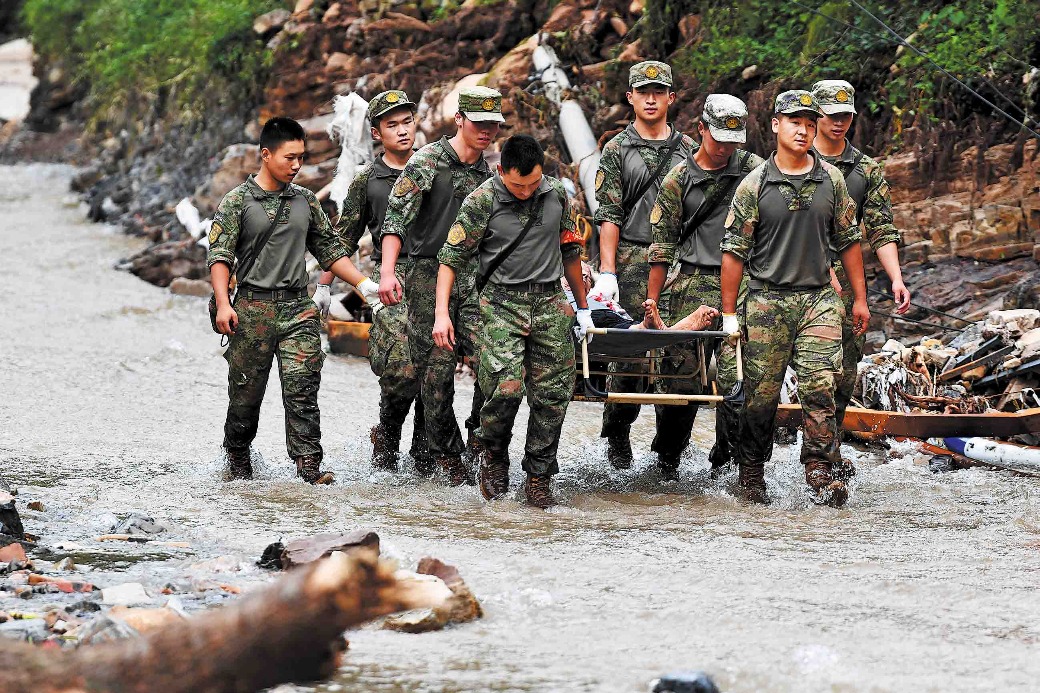Building resilience in children


The reality is that nearly all parents want to give their children a good life. There is surely no dishonor in that. However, after working in student pastoral care for several years, I've come to realize many parents equate "doing more for their kids" as "doing right by their kids". In my experience, nothing could be further from the truth. In a quest to provide the best, many parents micromanage or shield their children from any type of hardship. These actions, while well-intentioned, often rob them of critical learning opportunities. If we want to prepare our children for the adult world, we need to ensure they can develop the necessary skills to navigate life's challenges. I believe there are a few ways we can achieve this.
Commend them for their study skills, not for being 'smart'
Should children be praised for being smart, or should they be commended for the effort and skills they apply? Hard work, consistency, perseverance, and organization are all admirable traits that generally equate with achievement; however, intelligence alone cannot always guarantee success. From time to time, even the smartest children face setbacks. When we praise effort, we create a growth mindset (think Carol Dweck), allowing individuals to see the fruits of their labor coming from skills and the effort applied as opposed to intelligence. I've worked with several students who consistently earned high grades and were always praised for being "gifted". But the moment they encountered a lower grade, their self-worth crumbled because they had never been taught to see setbacks as part of growth. Many setbacks are usually associated with mishaps in study skills, i.e. not reading instructions carefully or poor time management, as opposed to a lack of intelligence. Reviewing mistakes allows children to realize where problems lie and how they can overcome them by improving things such as scheduling, note-taking, or even applying more effort. One thing these children do not believe after a setback is that they "aren't smart enough".
Allow them to struggle at times
We've all heard of the helicopter parent, right? Well, make way for the snowplow parent! While the helicopter parent is hovering above waiting to swoop down to the rescue whenever a problem appears, the snowplow parents is way ahead clearing the path, so the child doesn't come across any difficulties whatsoever. Although both approaches are done with the best of intentions, what they often result in are less resilient children who are not used to dealing with issues on their own and rely on being rescued by caregivers. The result can be a child who lacks the autonomy or ability to handle problems when they arise, which is hardly good prep for adult life. For instance, if your child realizes they've forgotten their homework, resist the urge to rush home and retrieve it. They're more likely to learn a valuable lesson from facing the consequences than from having you deliver it to school. Tip: Remind them to double check their bag before leaving the house!
Allow them to deal with their own disputes now and then
This leads on from the last point, but if there is ever an incident where your child receives a nasty name or hostility from a peer, just ask yourself: Do I really need to intervene? According to the American Psychological Association "Bullying is a form of aggressive behavior in which someone intentionally and repeatedly causes another person injury or discomfort." I'd like to highlight a key word there: "repeatedly". If a child is repeatedly receiving negative comments or hostile treatment from a peer, then of course this warrants an intervention. However, one off comments or negative interactions do not always deserve the intervention of a caregiver and are a reality of growing up. Instead of jumping in, parents can coach a child to say something assertive like, "That's not OK — don't talk to me like that." This empowers them while still offering guidance. Trust me, if a second-grade child is called "stinky face" by a classmate, parents most likely do not need to intervene.
Speak with them about how they are feeling
It worries me how many parents don't know their children. This isn't because they don't care, but quite often life gets busy, and our conversations stay only at the surface level. We only have one chance to be a parent, so trying to slow down and connect won't hurt. Try questions like "What was something that made you laugh today?" or "Was there a part of the day that was hard?" These types of open-ended questions invite more than just "fine" or "okay" and build emotional fluency. Getting to know our children and engaging with them can allow them to become comfortable opening with us about their concerns. When we find out what some of these concerns are, we can assure them that most of the things they are worrying with are a normal part of growing up and will likely pass. Of course, if more dark thoughts are running through their heads, then some type of psychological intervention could be warranted. However, opening up about their feelings and parents providing reassurance "Don't worry, this will pass" or "I have your back", can help young people realize they aren't alone, they can navigate the world with confidence, and we can work on building a solid foundation for resilience.
Concluding thoughts
Being a parent is never easy, and we all face struggles. However, developing resilience in children is vital for their future and largely relies on how we raise them. By recognizing effort rather than intelligence, allowing challenges, promoting conflict resolution, and encouraging open communication, our children acquire skills to handle life's difficulties. When we nurture resilience, we're doing more than preparing our children to cope — we're giving them the tools to thrive.
Gary Wood is a pastoral worker at an international school in Wuxi, China. The views don't necessarily reflect those of China Daily.
If you have a specific expertise, or would like to share your thought about our stories, then send us your writings at opinion@chinadaily.com.cn, and comment@chinadaily.com.cn.


































